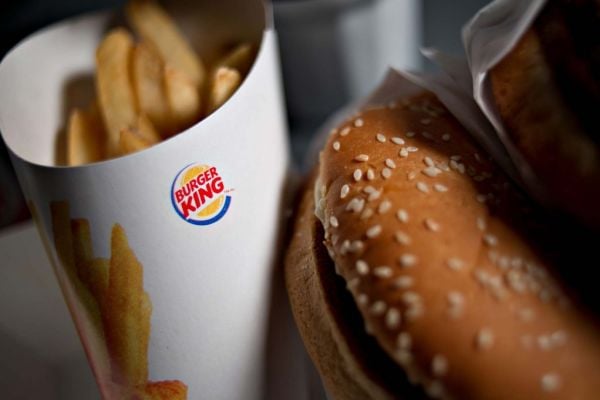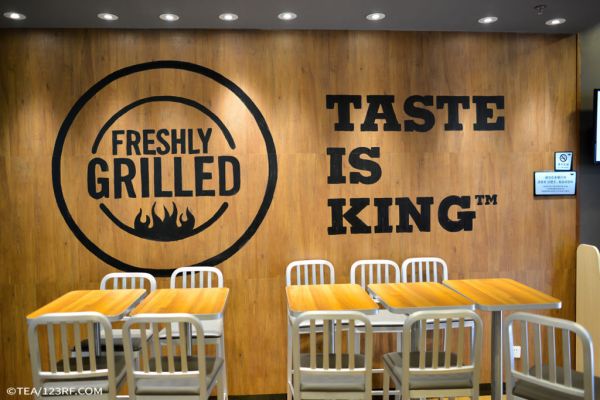China ordered nationwide spot checks on restaurants that sourced meat from a US-owned Chinese supplier to McDonald’s Corp. and Yum! Brands Inc., after the unit was shut for allegedly selling expired products.
Chinese inspectors will conduct “thorough spot checks” to assess if customers of Shanghai Husi Food Co. breached their responsibilities to ensure food safety, such as checking food purchases and accompanying certificates and invoices, China Food and Drug Administration said in a statement on its website.
Authorities suspended operations at Shanghai Husi, a unit of Aurora, Illinois-based OSI Group, after the local Dragon TV channel reported on July 20 its workers repackaged and sold chicken and beef past the sell-by date. The probe may affect chains such as McDonald’s, Yum’s KFC and Pizza Hut, Papa John’s International Inc. and Burger King Worldwide Inc., which said they had bought and have since removed items from the supplier.
“You’re going to see more pressure for restaurant players to take direct control of their supply chains,” said James Button, Shanghai-based director of Smithstreet, which advises companies on their China strategies. “It’s certainly going to make things difficult for brands in the short term and I would not be surprised at all if more problems are uncovered.”
The latest incident renews fears over unsafe food in China, following abuses that included fox DNA found in donkey meat and baby formula laced with melamine, a toxic chemical. China’s leaders have sought to ease those concerns with a new draft law that brings increased scrutiny over the industry, harsher penalties, and more compensation for consumers.
Expired Meat
OSI Group apologised to its customers, calling the case an “isolated event” in a statement on its website.
An unnamed quality manager at Shanghai Husi’s factory said company executives approved the use of expired ingredients, a practice he said had been going on for a few years, according to Dragon TV’s taping of his interrogation by authorities. Two calls to OSI China’s main office in Shanghai weren’t answered. The Shanghai city government’s media office didn’t immediately respond to a request for comment.
Shanghai Husi’s case would be handed to police if crimes were suspected, according to the regulator. It also ordered probes into all other China food-production operations invested by the OSI Group, including in Shandong, Guangdong and Yunnan.
McDonald’s and Yum said they have started investigating Shanghai Husi, apologising to consumers for the inconvenience caused by possible shortages of some items. Starbucks Corp. removed one affected item from its menu, while Burger King and Dicos, owned by Taiwan’s Ting Hsin International Group, said on their official microblogs they have blocked Shanghai Husi’s products from their outlets and were probing the supplier.
‘Completely Unacceptable’
The meat was sold to locations in China and Japan, Heidi Barker, a US spokeswoman for McDonald’s, said in an e-mail. The facility had only supplied the Shanghai market, not all of China, she said. In Japan, McNuggets was the sole affected item.
“If confirmed, the practices outlined in the report are completely unacceptable to McDonald’s,” Barker said. “This matter is being thoroughly investigated and we are cooperating fully with the authorities.”
Dragon TV said its reporters who entered Shanghai Husi factories saw evidence that expired chicken and beef were repackaged and given shelf lives of another year.
Municipal food-and-drug authorities asked all companies sourcing from Shanghai Husi to remove its products from sale, according to the regulator. McDonald’s has sealed about 4,500 boxes of beef, pork and chicken meat products, and Pizza Hut has sealed 500 boxes of beef products, Shanghai’s Food and Drug Administration said in a statement.
Shanghai’s authorities will start citywide checks on meat-processing companies and fast-food chains, it added. McDonald’s has about 2,000 restaurants in China, while Yum has more than 4,600 KFC outlets in 950 cities, and 1,100 Pizza Hut restaurants in about 300 cities, according to their websites.
Chicken Apple Panini
Starbucks, the world’s largest coffee-shop chain, said it doesn’t work directly with Shanghai Husi, though one of its suppliers did. The affected item, a chicken apple panini, was only available in China and is no longer for sale, the Seattle-based company said in a statement.
This is the second time in less than two years that McDonald’s and Yum have been hit by a food safety issue involving Chinese suppliers. In December 2012, Shanghai authorities said that tests conducted from 2010 to 2011 by a third-party agency found high levels of antibiotics in eight batches of chicken supplied to Yum by Liuhe Group Co. The company also supplied McDonald’s in China at the time.
Revamped Menu
Yum, a Kentucky-based company that gets about half its revenue from China, has revamped its menu and offered deals to woo back diners over the past two years. Yum is China’s biggest fast-food chain by market share, with 5 per cent last year, according to London-based research firm Euromonitor International Ltd. McDonald’s, based in Illinois, is the second largest, with 2.6 percent of the market.
Foreign and domestic companies operating in China have been hurt by shoddy food supplies in the past. Wal-Mart Stores Inc., the world’s largest retailer, promised to boost inspections of suppliers this year after authorities said that donkey meat sold at its Chinese stores contained fox DNA.
Bloomberg News edited by Hospitality Ireland









